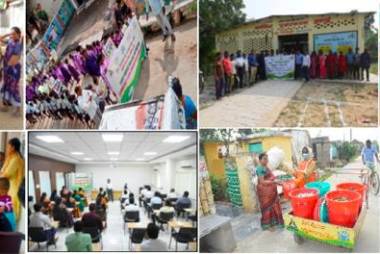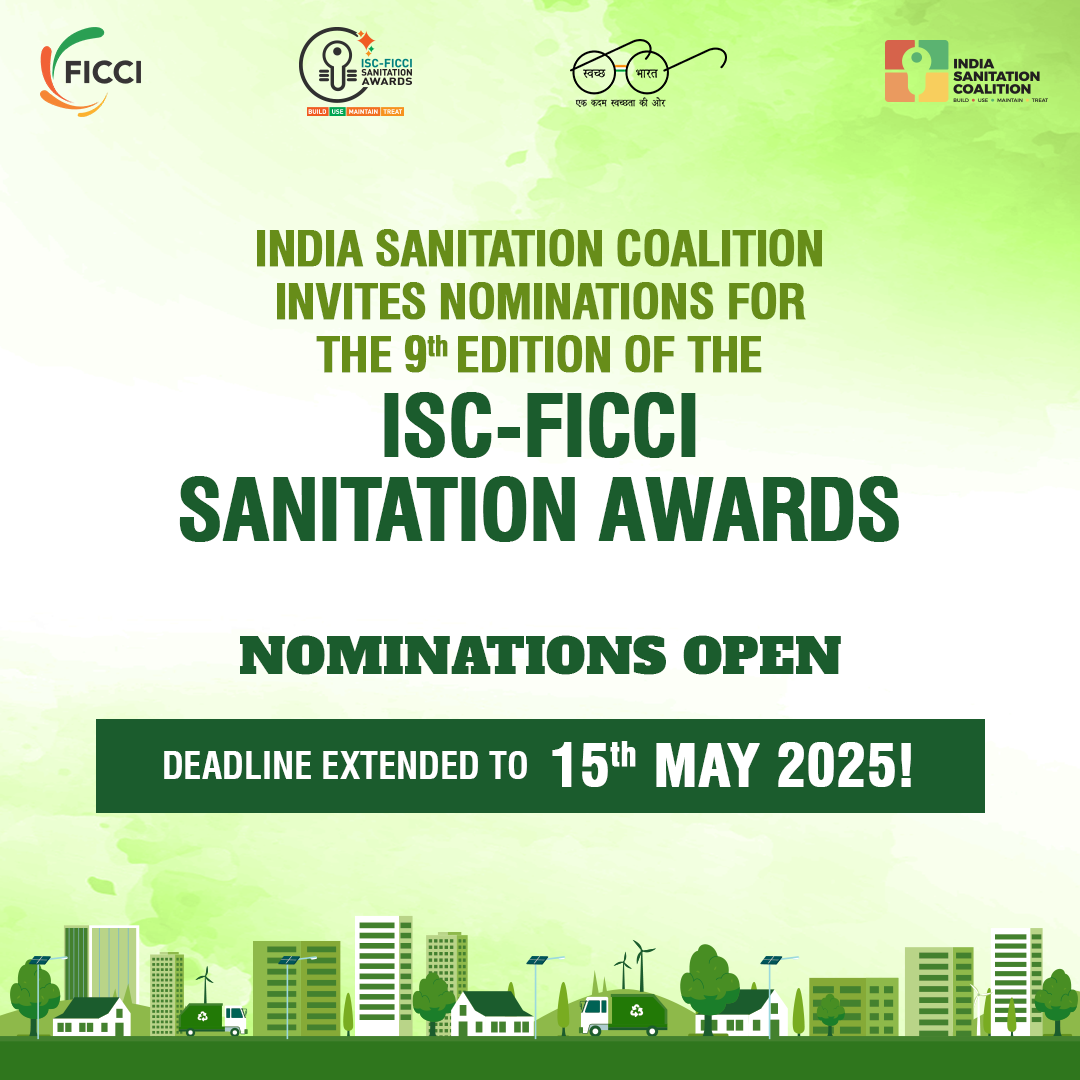ITC Limited supports 36 GPs in 10 States
Article Published On: 17 March 2023
 Under the Lighthouse Initiative (LHI), ITC Limited supports sanitation and solid waste management programmes in 36 Gram Panchayats (GPs) of 20 Districts in 10 States across the country. The focus of their work is on behaviour change, ODF sustainability, and Solid and Liquid Waste Management (SLWM).
Under the Lighthouse Initiative (LHI), ITC Limited supports sanitation and solid waste management programmes in 36 Gram Panchayats (GPs) of 20 Districts in 10 States across the country. The focus of their work is on behaviour change, ODF sustainability, and Solid and Liquid Waste Management (SLWM).
The Lighthouse Initiative (LHI) has been launched as a multi-stakeholder Public Private Community Partnership by the Department of Drinking Water and Sanitation (DDWS), Government of India, along with India Sanitation Coalition (ISC) at FICCI, and Corporates under SBM-G Phase 2. The programme aims to create 75 model GPs across 15 states with all systems in place for rural sanitation that would bring about visual cleanliness, in its first phase. ITC Limited is helping the government to create 36 such ‘Lighthouses’ of ODF Plus out of 75 selected GPs in 10 states.
Under the partnership, ITC is helping the respective SBM-G teams of the districts and Gram Panchayats to develop plans for decentralized and sustainable sanitation, run campaigns for behaviour change, handhold the implementation process with community participation for sustainability, and design a monitoring framework for SBM-G.
Locations of ITC interventions under LHI are in the States of Punjab (1 district, 2 GPs), Uttarakhand (3 districts, 5 GPs), Uttar Pradesh (1 district, 2 GPs), Bihar (7 districts, 8 GPs), West Bengal (1 district, 2 GPs), Maharashtra (1 district, 2 GPs), Telangana (1 district, 4 GPs), Karnataka (2 districts, 4 GPs), Andhra Pradesh (2 districts, 6 GPs), and Tamil Nadu (1 district, 1 GP).
Interventions in the ITC-supported lighthouse GPs are planned in a way that they are low cost, aligned to government schemes, and thus become scalable and decentralized, facilitating ease of management by the community and thus ensuring sustenance. The plans are developed under 5 broad pillars:
ODF Sustainability: New toilets/Community toilets for left-out beneficiaries, retrofitting of single pit toilets
Solid waste management: Promotion of source segregation, composting, management of plastic and other recyclables, and enforcement of user fee payment by Panchayats
Liquid waste management: Construction of soak pits at household and community levels which are easy to implement and maintain; pilots of other low-cost technologies
Faecal sludge management: Using toilet slurry as manure in agriculture and linking households with the nearest Faecal Sludge Treatment Plant through service providers
Community awareness and behaviour change through triggering exercises, Participatory Rural Appraisals (PRAs), and the use of high-impact Information Education and Communication (IEC) material.
To date, gap assessment through PRAs and surveys have been completed; Detailed Project Reports (DPRs) have been prepared, and activities have been included in Gram Panchayat Development plans and submitted for approvals for all 36 GPs.
Capacity Building and awareness creation have been initiated in association with State Mission teams. Execution of Solid Waste Management (SWM) along with already approved plans for Liquid Waste Management (LWM) has been initiated. Parallel to this, exposure of nearby GPs to Lighthouse GPs, has also been taken up to set the foundation for scaling up the intervention in the near future.
ITC’s Social Investments Programme, spread across more than 200 districts of 20 states responds to the multi-dimensional development challenges of communities residing in factory and agri-value chain catchments of the company with the dual objective of strengthening sustainable livelihoods today and enabling sustainable livelihoods tomorrow.
ITC’s Sanitation and Solid Waste Management Programme is spread across 13 States and 143 Districts. The four major components of the sanitation programme include individual household toilets, community toilets, child and gender-friendly WASH in schools; and decentralized solid waste management. The programme aims to bring about social behavior change among households through community institutions such as Mohalla Committees, Panchayats, etc., to take ownership of creating clean, safe, and hygienic habitations.
ITC has successfully demonstrated the sanitation model based on the following key tenets:
Driving behavior change through effective communication and awareness generation,
Strengthening and enabling community-based organizations to take ownership of operations and maintenance of the programme
Bringing ownership among beneficiary communities through their involvement right from the planning stage and upfront contribution or in the form of the user fee
Adopting low-cost decentralized solutions that are easy to manage and reduce handling costs
Partnerships with the Government for scale and sustainability
ITC’s programme has helped the government to meet the outcomes of the Swachh Bharat Mission Grameen, for example – toilet usage in ITC project locations is over 95%; school WASH has helped in reducing incidents of waterborne diseases and waste going to dumpsites has been reduced to below 10%.
DDWS through ISC is leveraging ITC’s experience and expertise in the sanitation and solid and liquid waste management space to achieve the outcomes planned under the Lighthouse Initiative in GPs, which would impact over 59,000 households, apart from getting it replicated to other GPs.
